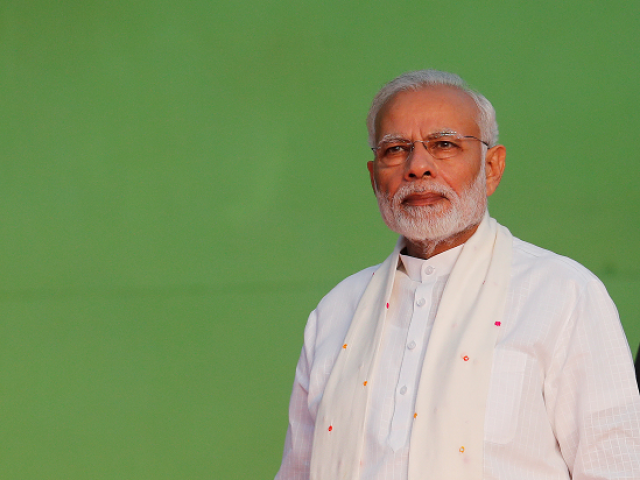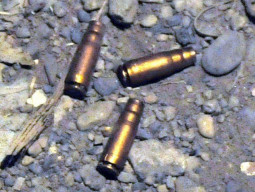
As Indus Water Commissioner Mehr Ali Shah downplayed concerns over the Sutlej flood situation before a Senate panel on Wednesday, insisting that Delhi had warned Islamabad about the release of water in a 'timely manner', Punjab Irrigation Minister Mohsin Leghari pointed to a larger problem with regards to data-sharing.
"Until two days ago, India did not release any data on water flow that it is bound to share under the Indus Waters Treaty (IWT)," Leghari complained while speaking to The Express Tribune. "And now, it is only releasing information for one location and that too, just once a day," he said.
The reason for the apparent obstinacy is India's reluctance to renew the Advance Flood Information Agreement (AFIA), sources in Pakistan's Indus Water Commission revealed. First signed in 1989 under Article 6 of IWT, which obliges both sides to regularly exchange water flow data, the agreement was renewed every year up until last year, they said.
Pakistan's Indus Water commissioner has already sent a letter to his Indian counterpart through both countries' foreign ministries but the latter has not formally responded so far, sources said. On the former's request, Pakistan's Foreign Office has sent a fresh letter of protest to Delhi.
Under AFIA, India was obligated to provide Pakistan water discharge data taken from nine specific locations on the Sutlej, Jhelum, Chenab, Ravi and Jammu rivers from July 1 to October 10 each year. The frequency and regularity of the sharing of this data were governed by the magnitude of water flow. Under specific conditions, India was bound to share data at six-hour, three-hour and one-hour intervals.
For instance, India was required to record discharge data for Ravi River at Madhopur headworks and share it with Pakistan after every six hours if the flow of water ranged between 30,000 to 100,000 cusecs. India would have to share data every three hours if the flow exceeded 100,000 cusecs but remained below 2 million cusecs, and after every hour if it exceeded 2 million cusecs.
For Sutlej River, India would have to record and share data from the Rupur and Harike headworks. For Rupur, data was to be shared ever six hours if the flow ranged between 50,000 to 150,000 cusecs, every three hours if it ranged between 150,000 and 250,000 cusecs, and every hour if it exceeded 250,000 cusecs. For Harike, India needed to release data to Pakistan every six hours if the flow ranged between 50,000 and 100,000 cusecs, three hours if it ranged between 100,000 and 150,000 cusecs, and every hour if it exceeded 150,000 cusecs.
Other headworks marked out in the AFIA include Akhnur for Chenab River, Jammu Tawi for Jammu River and the Beas and Bhakra dams for the Beas River.
According to water commission sources, over the last two days, India has shared data from only one location – Harike on Sutlej River. And if that was not enough, the data shared was incomplete and released only once a day.
In the meantime, Leghari and other senior Punjab Irrigation Department officials said there is no threat of major floods for now. According to them, the water released by India has had the effect of filling up Pakistan's major dams to full capacity, reducing the country's water shortage by 14 per cent.
Senate panel meeting
At the meeting of the Senate Standing Committee on Water Resources on Wednesday, Indus Water Commissioner Mehr Ali Shah criticised India's approach to abiding with IWT, even though he insisted India that had informed Pakistan about the Sutlej floodwater discharge in a 'timely manner'.
"Indian authorities informed Pakistan about the release of water on August 19. On the first day, it released 158,000 cusecs and on the second, it released 190,000 cusecs," he told the panel.
Water Resources Secretary Muhammad Ashraf also informed the committee that there was no flooding as yet. "We want India to release 200,000 cusecs," he was quoted as saying. Responding to question, he said his ministry was reviewing statements regarding India violating IWT.
During a discussion on India's release of water in the Sutlej River, it was recommended that an in-camera meeting be held solely to deliberate on this topic.
The panel, meanwhile, expressed concerns over settlements on flood waterways and directed authorities to restrict further encroachment. It also recommended that the people living on these waterways be resettled at safe places.
Sutlej water level update
The water level in the Sutlej River at Ganda Singh Wala reached 18.8 feet with the flow crossing 55,000 cusecs, officials said on Wednesday, stressing that the flood posed no threat to the irrigation infrastructure while the condition of all safety embankments was satisfactory.
The National Disaster Management Authority (NDMA) reported that about 18 villages in the vicinity of the Sutlej River are now underwater while three more villages have almost been evacuated. Officials expected medium flooding in the next six hours, while a high-level flood was expected in the next 24 hours when the flow was might top 150,000 cusecs.
According to the NDMA, the flood relay would pass Sulemanki Headworks on August 23, Islam Headworks on August 25 and would fall into the Chenab River on August 28 after passing through Panjnad River. The NDMA has issued alert to all the concerned provincial disaster management authorities PDMAs), departments and the local communities.
On Wednesday the discharge at Head Sulemanki was recorded at 18,880 cusecs against its capacity of 325,000 cusecs, the Irrigation officials from the Multan Zone said. Executive Engineer Chaudhry Muhammad Zahid said that there was a low flood in Sutlej, while a normal flood level was observed in Chenab. He added that capacity of Sutlej was 300,000 cusecs, while the discharge at Ganda Singh Wala was 55,900 cusec on Wednesday afternoon.
The NDMA has advised the relevant authorities to create awareness in the public, particularly those residing in and close to river banks and near watercourses not to venture on the flash flood routes, vacate dangerous buildings, remain away from electric wires and avoid swimming.
(WITH ADDITIONAL REPORTING BY RIZWAN GHILZAI AND AGENCIES)

1731570357-0/elon-musk-(1)1731570357-0-165x106.webp)
-(1)1717678110-0/Kendrick-(1)-(1)1717678110-0-165x106.webp)














COMMENTS
Comments are moderated and generally will be posted if they are on-topic and not abusive.
For more information, please see our Comments FAQ